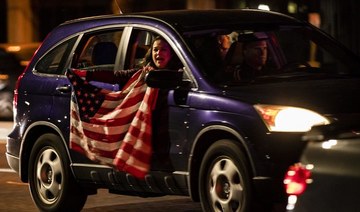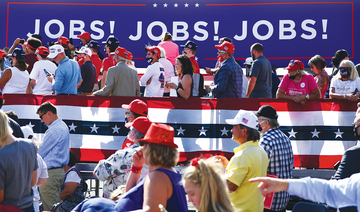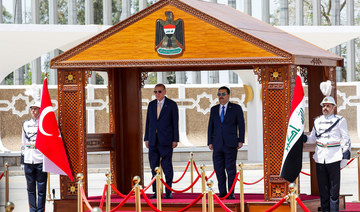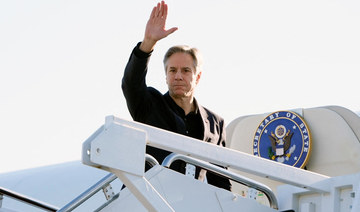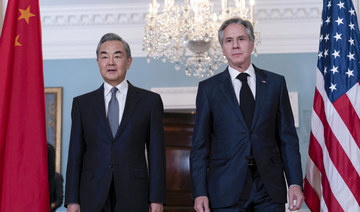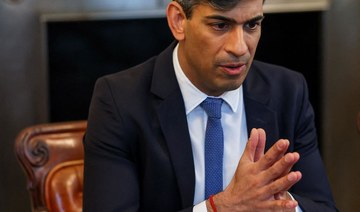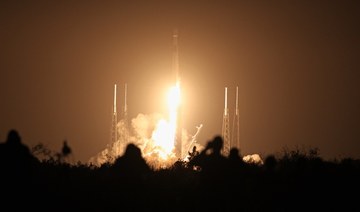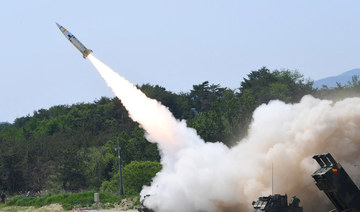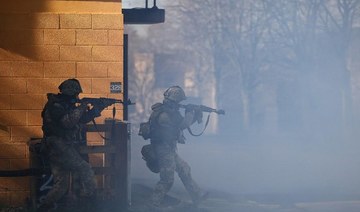BETHESDA, Md.: Stepping gingerly, President Donald Trump walked out the military hospital Monday night where he has been receiving an unprecedented level of care for COVID-19, immediately igniting a new controversy by declaring that despite his illness the nation should fear the virus that has killed more than 210,000 Americans.
Wearing a maBETHESDA, Md.: President Donald Trump staged a dramatic return to the White House Monday night after leaving the military hospital where he was receiving an unprecedented level of care for COVID-19. He immediately ignited a new controversy by declaring that despite his illness the nation should not fear the virus that has killed more than 210,000 Americans — and then he entered the White House without a protective mask.
Trump’s message alarmed infectious disease experts and suggested the president’s own illness had not caused him to rethink his often-cavalier attitude toward the disease, which has also infected the first lady and several White House aides, including new cases revealed on Monday.
Landing at the White House on Marine One, Trump gingerly climbed the South Portico steps, removed his mask and declared, “I feel good.” He gave a double thumbs-up to the departing helicopter from the portico terrace, where aides had arranged American flags for the sunset occasion. He entered the White House, where aides were visible milling about the Blue Room, without wearing a face covering.
The president left Walter Reed National Military Medical Center, where his doctor, Navy Cdr. Sean Conley, said earlier Monday that the president remains contagious and would not be fully “out of the woods” for another week but that Trump had met or exceeded standards for discharge from the hospital. Trump is expected to continue his recovery at the White House, where the reach of the outbreak that has infected the highest levels of the US government is still being uncovered.
Still, just a month before the election and anxious to project strength, Trump tweeted before leaving the hospital, “Will be back on the Campaign Trail soon!!!” And in case anyone missed his don’t-worry message earlier, he rushed out a new video from the White House.
“Don’t be afraid of it,” Trump said of the virus. “You’re going to beat it. We have the best medical equipment, we have the best medicines.” His remarks were strong, but he was taking deeper breaths than usual as he delivered them.
Trump’s nonchalant message about not fearing the virus comes as his own administration has encouraged Americans to be very careful and take precautions to avoid contracting and spreading the disease as cases continue to spike across the country. For more than eight months, Trump’s efforts to play down the threat of the virus in hopes of propping up the economy ahead of the election have drawn bipartisan criticism.
“We have to be realistic in this: COVID is a complete threat to the American population,” Dr. David Nace of the University of Pittsburgh Medical Center, said of Trump’s comment.
“Most of the people aren’t so lucky as the president,” with an in-house medical unit and access to experimental treatments, added Nace, an expert on infections in older adults.
“It’s an unconscionable message,” agreed Dr. Sadiya Khan of Northwestern University Feinberg School of Medicine. “I would go so far as to say that it may precipitate or worsen spread.”
Likewise, Democratic presidential nominee Joe Biden, who spent more than 90 minutes on the debate stage with Trump last week, said during an NBC town hall Monday night that he was glad Trump seemed to be recovering well, “but there’s a lot to be concerned about — 210,000 people have died. I hope no one walks away with the message that it’s not a problem.”
Biden, who tested negative for the virus on Sunday, said in an interview with WPLG Local 10 News in Miami: “I saw a tweet he did, they showed me, he said ‘Don’t let COVID control your life.’” Tell that to all the “families that lost someone.”
There was pushback from a prominent Trump political supporter as well.
Republican Sen. John Cornyn of Texas told the Houston Chronicle editorial board that Trump had “let his guard down” in his effort to show that the country was moving beyond the virus and had created “confusion” about how to stay safe.
Dr. Conley said that because of Trump’s unusual level of treatment so early after discovery of his illness he was in “uncharted territory.” But the doctor also was upbeat at an afternoon briefing and said the president could resume his normal schedule once “there is no evidence of live virus still present.”
According to the Centers for Disease Control and Prevention, those with mild to moderate symptoms of COVID-19 can be contagious for as many — and should isolate for at least — 10 days.
Trump’s arrival back at the White House raised new questions about how the administration was going to protect other officials from a disease that remains rampant in the president’s body. Press secretary Kayleigh McEnany announced she had tested positive for the virus Monday morning and was entering quarantine.
There were also lingering questions about potential long term effects to the president — and even when he first came down with the virus
Conley repeatedly declined to share results of medical scans of Trump’s lungs, saying he was not at liberty to discuss the information because Trump did not waive doctor-patient confidentiality on the subject. COVID-19 has been known to cause significant damage to the lungs of some patients. Conley also declined to share the date of Trump’s most recent negative test for the virus — a critical point for contact tracing and understanding where Trump was in the course of the disease.
Only a day earlier, Trump suggested he had finally grasped the true nature of the virus, saying in a video, “I get it.” But then on Sunday afternoon, he ventured out of the hospital while contagious to salute cheering supporters by motorcade — an outing that disregarded precautions meant to contain the virus.
At the hospital, doctors revealed that his blood oxygen level had dropped suddenly twice in recent days and that they gave him a steroid typically only recommended for the very sick.
Trump’s experience with the disease has been dramatically different from most Americans, who do not have access to the same kind of monitoring and care. While most must cope with their symptoms — and fear of whether they’ll take a turn for the worse — at home and alone, Trump has been staying in the presidential suite of one of the nation’s best hospitals and has been given experimental drugs not readily available to the public. He returns to the White House where there is a team of doctors on call with 24-hour monitoring.
Trump was leaving the hospital after receiving a fourth dose of the antiviral drug remdesivir Monday evening, Conley said. He will receive the fifth and final dose Tuesday at the White House.
Vice President Mike Pence returned to the campaign trail moments after Trump announced he would soon leave the hospital. The vice president boarded Air Force Two to fly to Salt Lake City, where he is to face off against Democratic vice presidential nominee Sen. Kamala Harris on Wednesday.
Trump, in his new video, defended his decision to repeatedly flout his own administration’s guidelines to slow the spread of the virus, including by holding rallies with thousands of largely maskless supporters.
Apparently referring to any potential danger to himself rather than others, he said, “I stood out front. I led. Nobody that’s a leader would not do what I did.” He added, “And I know there’s a risk, there’s a danger. But that’s OK. And now I’m better. And maybe I’m immune, I don’t know.”
Even before Trump’s motorcade outing on Sunday, some Secret Service agents had expressed concern about the lackadaisical attitude toward masks and social distancing inside the White House, but there isn’t much they can do, according to agents and officials who spoke to The Associated Press.
Trump’s aggressive course of treatment included the steroid dexamethasone and the single dose he was given Friday of an experimental drug from Regeneron Pharmaceuticals Inc. that supplies antibodies to help the immune system fight the virus. Trump on Friday also began a five-day course of remdesivir, a Gilead Sciences drug currently used for moderately and severely ill patients. The drugs work in different ways — the antibodies help the immune system rid the body of virus, and remdesivir curbs the virus’ ability to multiply.sk, Trump left Walter Reed National Military Medical Center for a waiting SUV that carried him to Marine One for the short helicopter flight back to the White House. Trump’s doctor, Navy Cdr. Sean Conley, said the president would not be fully “out of the woods” for another week but that Trump had met or exceeded standards for discharge from the hospital. Trump is expected to continue his recovery at the White House, where the reach of the outbreak that has infected the highest levels of the US government is still being uncovered.
Still Trump, who remains contagious, indicated he won’t be kept from campaigning for long, tweeting before leaving the hospital, “Will be back on the Campaign Trail soon!!!”
Trump made a point of sounding confident earlier. He tweeted, “I will be leaving the great Walter Reed Medical Center today at 6:30 P.M. Feeling really good! Don’t be afraid of Covid. Don’t let it dominate your life. ... I feel better than I did 20 years ago!”
However, that message alarmed infectious disease experts and suggested the president’s own illness had not caused him to rethink his often-cavalier attitude toward the disease, which has also infected the first lady and several White House aides, including new cases revealed on Monday.
“We have to be realistic in this: COVID is a complete threat to the American population,” said Dr. David Nace of the University of Pittsburgh Medical Center, an expert on infections in older adults.
“Most of the people aren’t so lucky as the president,” with an in-house medical unit and access to experimental treatments, Nace added.
“It’s an unconscionable message,” agreed Dr. Sadiya Khan of Northwestern University Feinberg School of Medicine. “I would go so far as to say that it may precipitate or worsen spread.”
There was political pushback to Trump’s attitude toward the virus, as well.
Republican Sen. John Cornyn of Texas told the Houston Chronicle editorial board that Trump had “let his guard down” in his effort to show that the country was moving beyond the virus and had created “confusion” about how to stay safe.
Conley said that because of Trump’s unusual level of treatment so early after discovery of his illness he was in “uncharted territory.” But the doctor also was upbeat at an afternoon briefing and said the president could resume his normal schedule once “there is no evidence of live virus still present.”
According to the Centers for Disease Control and Prevention, those with mild to moderate symptoms of COVID-19 can be contagious for as many — and should isolate for at least — 10 days.
Trump’s expected discharge raised new questions about how the administration was going to protect other officials from a disease that remains rampant in the president’s body. Press secretary Kayleigh McEnany announced she had tested positive for the virus Monday morning and was entering quarantine.
Both Nace and Khan expressed fear Trump won’t properly stay isolated at the White House — and that he hasn’t learned his lesson about wearing a mask.
“We know he hates the mask, we know he hates to be restricted, we know he’s unpredictable,” Nace said. “The rest of the American people are held accountable to a 10-day isolation period.”
There were also lingering questions about potential long term effects to the president — and even when he first came down with the virus
Conley repeatedly declined to share results of medical scans of Trump’s lungs, saying he was not at liberty to discuss the information because Trump did not waive doctor-patient confidentiality on the subject. COVID-19 has been known to cause significant damage to the lungs of some patients. Conley also declined to share the date of Trump’s most recent negative test for the virus — a critical point for contact tracing and understanding where Trump was in the course of the disease.
Trump’s nonchalant message about not fearing the virus comes as his own administration has encouraged Americans to be very careful and take precautions to avoid contracting and spreading the disease as cases continue to spike across the country. For more than eight months, Trump’s efforts to play down the threat of the virus in hopes of propping up the economy ahead of the election have drawn bipartisan criticism.
Only a day earlier, Trump suggested he had finally grasped the true nature of the virus, saying in a video, “I get it.” But then on Sunday afternoon, Trump briefly ventured out of the hospital while contagious to salute cheering supporters by motorcade — an outing that disregarded precautions meant to contain the virus.
White House officials said Trump was anxious to be released after three nights at Walter Reed National Military Medical Center, where doctors revealed that his blood oxygen level had dropped suddenly twice in recent days and that they gave him a steroid typically only recommended for the very sick.
Trump’s experience with the disease has been dramatically different from most Americans, who do not have access to the same kind of monitoring and care. While most must cope with their symptoms — and fear of whether they’ll take a turn for the worse — at home and alone, Trump has been staying in the presidential suite of one of the nation’s best hospitals and has been given experimental drugs not readily available to the public. He returns to the White House where there is a team of doctors on call with 24-hour monitoring.
Trump was leaving the hospital after receiving a fourth dose of the antiviral drug remdesivir Monday evening, Conley said. He will receive the fifth and final dose Tuesday at the White House.
Less than one month before Election Day, Trump was eager to project strength despite his illness and to press his campaign effort across the country.
Vice President Mike Pence returned to the campaign trail moments after Trump announced he would soon leave the hospital. The vice president boarded Air Force Two to fly to Salt Lake City, where he is to face off against Democratic vice presidential nominee Sen. Kamala Harris on Wednesday.
Joe Biden’s campaign, meanwhile, said the Democratic presidential nominee again tested negative for coronavirus Sunday. The results came five days after Biden spent more than 90 minutes on the debate stage with Trump.
McEnany, who announced Monday that she had contracted the virus, spoke briefly with reporters on Sunday evening without wearing a mask, but said that no members of the White House press corps spent enough time around her to be considered close contacts.
Even before Trump’s motorcade outing on Sunday, some Secret Service agents had expressed concern about the lackadaisical attitude toward masks and social distancing inside the White House, but there isn’t much they can do, according to agents and officials who spoke to The Associated Press. This close to the election, thousands of agents are engaged on protective duty so they can be subbed out quickly should someone test positive.
Trump’s aggressive course of treatment included the steroid dexamethasone and the single dose he was given Friday of an experimental drug from Regeneron Pharmaceuticals Inc. that supplies antibodies to help the immune system fight the virus. Trump on Friday also began a five-day course of remdesivir, a Gilead Sciences drug currently used for moderately and severely ill patients. The drugs work in different ways — the antibodies help the immune system rid the body of virus, and remdesivir curbs the virus’ ability to multiply.
Trump, still infectious, back at White House — without mask
https://arab.news/j8q2y
Trump, still infectious, back at White House — without mask
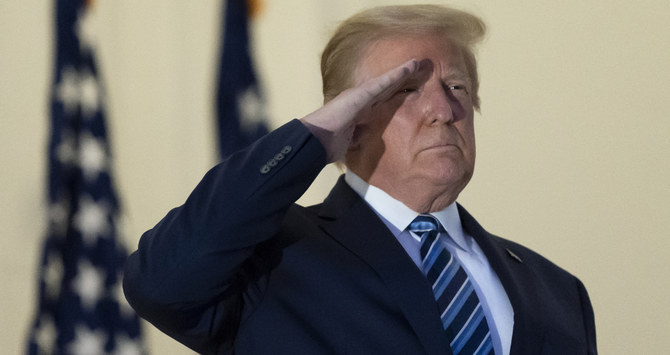
- “And I know there’s a risk, there’s a danger. But that’s OK. And now I’m better. And maybe I’m immune, I don’t know.”
- Trump tweeted before leaving the hospital, “Will be back on the Campaign Trail soon!!!”
Turkiye offers Iraq technical help to bolster border security
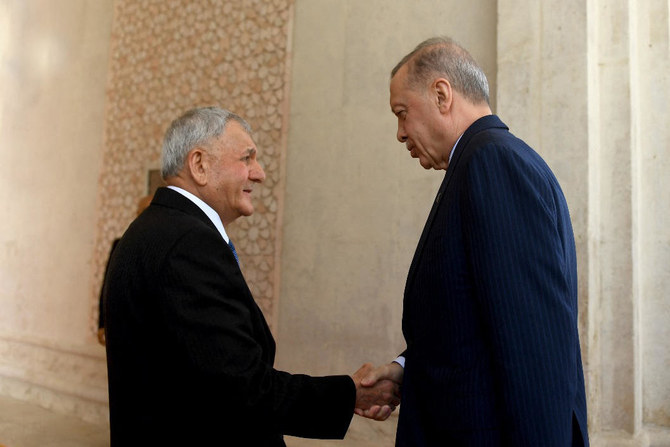
- A delegation from Iraq earlier visited Turkiye to examine the border security systems that Turkiye offered to provide
- Discussions for security cooperation still under way
ANKARA: Turkiye is in discussions with Iraq to provide technical assistance to Baghdad for securing its borders to prevent movements of outlawed Kurdistan Workers Party (PKK) militants around the region, a Turkish defense ministry official said on Thursday.
Turkish President Tayyip Erdogan visited Baghdad and Irbil this week as Ankara ramped up cross-border operations against PKK militants based in mountainous, mainly Kurdish northern Iraq.
The two countries agreed to a strategic framework agreement overseeing security, trade and energy as well as a defense cooperation deal during the visit.
“We told our counterparts that Turkiye is ready to provide assistance to Iraq on border security systems,” the Turkish official told reporters.
A delegation from Iraq earlier visited Turkiye to examine the border security systems that Turkiye offered to provide, the official also said, adding that the discussions for security cooperation were still under way.
During a joint press conference with Erdogan on Monday, Iraqi Prime Minister Mohammed Shia Al-Sudani said the two countries would cooperate to bolster border security, without mentioning the PKK specifically.
The PKK took up arms against the Turkish state in 1984 and is designated a terrorist organization by Ankara and its Western allies. Turkiye has conducted a series of cross-border operations against the group in northern Iraq since 2019.
Blinken calls for US, China to manage differences
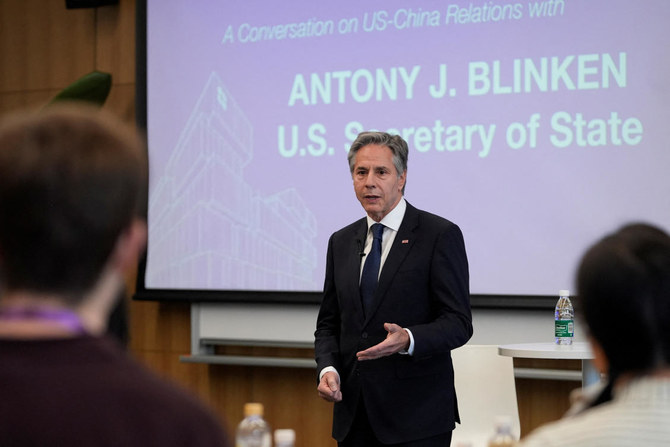
- China has not announced plans for US Secretary of State to meet Xi Jinping
- Antony Blinken is the first US secretary of state in 14 years to visit Shanghai
SHANGHAI: US Secretary of State Antony Blinken called Thursday on the United States and China to manage their differences “responsibly” as he went on a charm offensive ahead of expected tough talks.
A day before meeting Beijing’s top brass to tackle thorny issues including Russia, Taiwan and trade, Blinken’s visit to Shanghai has seen him sample local food, watch a basketball game and stroll along the city’s famous Bund promenade.
Visiting the local Communist Party leader in a room with sweeping views of the Shanghai skyline, Blinken said US President Joe Biden was committed to “direct and sustained” dialogue between the world’s two largest economies after years of mounting tension.
“I think it’s important to underscore the value — in fact, the necessity — of direct engagement, of speaking to each other, laying out our differences, which are real, seeking to work through them,” Blinken said.
“We have an obligation for our people — indeed an obligation to the world — to manage the relationship between our two countries responsibly.”
The Chinese Communist Party secretary for Shanghai, Chen Jining, welcomed Blinken partly in English and spoke of the importance of US businesses to the city.
“Whether we choose cooperation or confrontation affects the well-being of both peoples, both countries and the future of humanity,” Chen told him.
The country’s financial capital, Shanghai is often a stepping stone to power in China, with President Xi Jinping previously serving briefly in the city.
China has not announced plans for Blinken to meet Xi, although on Blinken’s last visit in June, they saw each other in a meeting announced at the last minute.
On Thursday, Blinken also met students at the Shanghai campus of New York University, where he voiced hope for more Americans to study in China.
He insisted the United States was committed to welcoming Chinese students.
Beijing has repeatedly alleged that Chinese nationals with valid travel documents, including students, have been subject to aggressive interrogations and deportations at US airports.
“President Biden and President Xi are determined to strengthen our people-to-people ties,” Blinken said.
Blinken, the first US secretary of state in 14 years to visit Shanghai, opened his visit Wednesday evening at a restaurant serving steamed buns.
Sporting a suit without a tie, he ate with his senior staff in a shopping arcade as curious onlookers snapped pictures.
Blinken then went to watch a basketball game between the Shanghai Sharks and Zhejiang Golden Bulls, staying until the end of the nail-biting play-off.
Such softer diplomacy, once a staple of US-China relations, would have been unimaginable until recently, with hawks in both countries speaking of an emerging new Cold War.
Blinken’s aides hope his smiling persona at public events draws an implicit contrast to his Russian counterpart Sergei Lavrov and his gruffer approach when he visited China earlier this month.
Blinken is expected to raise concerns about China’s relationship with Russia when he meets the leadership in Beijing.
Although US officials were initially pleased that Beijing has not shipped weapons to Russia for its war in Ukraine, they now say that China’s alarm at Moscow’s setbacks on the battlefield has prompted it to export vast quantities of industrial supplies to Russia.
US officials believe China is more receptive to Western concerns as it seeks to focus on managing economic headwinds at home and wants to avoid friction with the West.
But China is also furious about a series of moves by Biden — who is facing a tough re-election fight in November against Donald Trump — they say serve to constrain the Chinese economy.
Most recently, the US Congress approved legislation that would force the divestment of blockbuster social media app TikTok from its Chinese owners or face a ban in the world’s largest economy.
Biden supports the legislation, arguing that TikTok, popular among young people, poses security and privacy concerns. China has accused the United States of unfair economic coercion.
Unusually, Trump has distanced himself from a TikTok ban. He has otherwise championed a tough line on China, with vows to raise tariffs drastically if he returns to office.
US officials also say that Blinken will encourage China to act with restraint as Taiwan inaugurates a new president next month.
China claims the self-governing democracy as its own and has not ruled out using force to seize it.
Privately, US officials were relieved by China’s approach during Taiwan’s election, believing that easing US-China tensions helped.
They assessed that Beijing’s assertive military moves did not go beyond past precedent.
Rwanda’s Hope Hostel once housed young genocide survivors. Now it’s ready for migrants from Britain
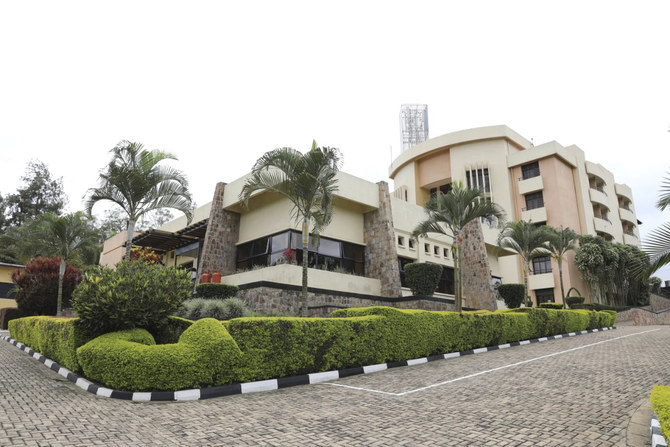
KIGALI, Rwanda: Rwanda says it’s ready to receive migrants from the United Kingdom after British Parliament this week approved a long-stalled and controversial bill seeking to stem the tide of people crossing the English Channel in small boats by deporting some of them to the East African country.
There is even a place ready and waiting for the migrants — a refurbished Hope Hostel in the vibrant upscale neighborhood of Kagugu, an area of the Rwandan capital of Kigali that is home to many expats and several international schools.
The hostel once housed college students whose parents died in the 1994 genocide, this African nation’s most horrific period in history when an estimated 800,000 Tutsi were killed by extremist Hutu in massacres that lasted over 100 days.
British Prime Minister Rishi Sunak has pledged the deportation flights would begin in July but has refused to provide details or say about how many people would be deported.
Rwanda government’s deputy spokesperson Alain Mukuralinda told The Associated Press on Tuesday that authorities here have been planning for the migrants’ arrival for two years.
“Even if they arrive now or tomorrow, all arrangements are in place,” he said.
The plan was long held up in British courts and by opposition from human rights activists who say it is illegal and inhumane. It envisages deporting to Rwanda some of those who enter the UK illegally and migrant advocates have vowed to continue to fight against the plan.
The measure is also meant to be a deterrent to migrants who risk their lives in leaky, inflatable boats in hopes that they will be able to claim asylum once they reach Britain. The UK also signed a new treaty with Rwanda to beef up protections for migrants, and adopted new legislation declaring Rwanda to be a safe country.
“The Rwanda critics and the UK judges who earlier said Rwanda is not a safe country have been proven wrong,” Mukuralinda said. “Rwanda is safe.”
The management at the four-story Hope Hostel says the facility is ready and can accommodate 100 people at full capacity. The government says it will serve as a transit center and that more accommodations would be made available as needed.
Thousands of migrants arrive in Britain every year.
After they arrive from Britain, the migrants will be shown to their rooms to rest, after which they will be offered food and given some orientation points about Kigali and Rwanda, said hostel manager Ismael Bakina.
Tents will be set up within the hostel’s compound for processing their documentation and for various briefings. The site is equipped with security cameras, visible across the compound.
Within the compound are also entertainment places, a mini-soccer field, a basketball and a volleyball court as well as a red-carpeted prayer room. For those who want to light up, “there is even a smoking room,” Bakina explained.
Meals will be prepared in the hostel’s main kitchen but provisions are also being made for those who want to prepare their own meals, he said. The migrants will be free to walk outside the hostel and even visit the nearby Kigali city center.
“We will have different translators, according to (their) languages,” Bakina added, saying they include English and Arabic.
The government has said the migrants will have their papers processed within the first three months. Those who want to remain in Rwanda will be allowed to do so while authorities will also assist those who wish to return to their home countries.
While in Rwanda, migrants who obtain legal status — presumably for Britain — will also be processed, authorities have said, though it’s unclear what that means exactly.
For those who choose to stay, Mukurilinda said Rwanda’s government will bear full financial and other responsibilities for five years, after which they will be considered integrated into the society.
At that point, they can start managing on their own.
Russia vetoes a UN resolution calling for the prevention of a dangerous nuclear arms race in space
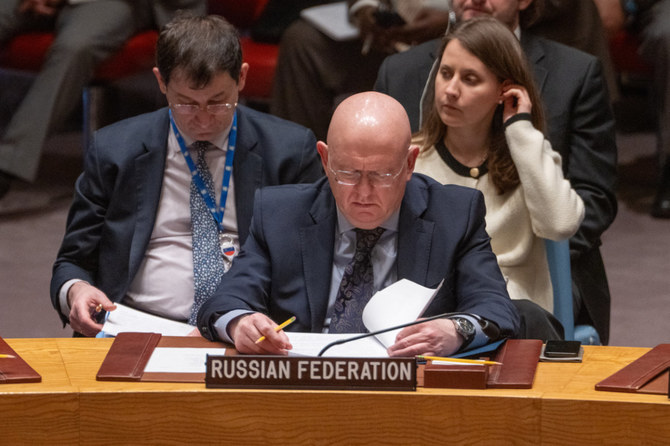
- The vetoed resolution sought to call on all countries not to develop or deploy nuclear arms or other weapons of mass destruction in space
- Russia dismissed the resolution as “absolutely absurd and politicized” and didn’t go far enough in banning all types of weapons in space
UNITED NATIONS: Russia on Wednesday vetoed a UN resolution sponsored by the United States and Japan calling on all nations to prevent a dangerous nuclear arms race in outer space, calling it “a dirty spectacle” that cherry picks weapons of mass destruction from all other weapons that should also be banned.
The vote in the 15-member Security Council was 13 in favor, Russia opposed and China abstaining.
The resolution would have called on all countries not to develop or deploy nuclear arms or other weapons of mass destruction in space, as banned under a 1967 international treaty that included the US and Russia, and to agree to the need to verify compliance.
US Ambassador Linda Thomas-Greenfield said after the vote that Russian President Vladimir Putin has said Moscow has no intention of deploying nuclear weapons in space.

“Today’s veto begs the question: Why? Why, if you are following the rules, would you not support a resolution that reaffirms them? What could you possibly be hiding,” she asked. “It’s baffling. And it’s a shame.”
Putin was responding to White House confirmation in February that Russia has obtained a “troubling” anti-satellite weapon capability, although such a weapon is not operational yet.
US National Security Advisor Jake Sullivan on Wednesday echoed Thomas-Greenfield, reiterating that “the United States assesses that Russia is developing a new satellite carrying a nuclear device.” If Putin has no intention of deploying nuclear weapons in space, Sullivan said, “Russia would not have vetoed this resolution.”
Russia’s UN Ambassador Vassily Nebenzia dismissed the resolution as “absolutely absurd and politicized,” and said it didn’t go far enough in banning all types of weapons in space.
Russia and China proposed an amendment to the US-Japan draft that would call on all countries, especially those with major space capabilities, “to prevent for all time the placement of weapons in outer space, and the threat of use of force in outer spaces.”
The vote was 7 countries in favor, 7 against, and one abstention and the amendment was defeated because it failed to get the minimum 9 “yes” votes required for adoption.
The US opposed the amendment, and after the vote Nebenzia addressed the US ambassador saying: “We want a ban on the placement of weapons of any kind in outer space, not just WMDs (weapons of mass destruction). But you don’t want that. And let me ask you that very same question. Why?”
He said much of the US and Japan’s actions become clear “if we recall that the US and their allies announced some time ago plans to place weapons … in outer space.”
Nebenzia accused the US of blocking a Russian-Chinese proposal since 2008 for a treaty against putting weapons in outer space.
Thomas-Greenfield accused Russia of undermining global treaties to prevent the spread of nuclear weapons, irresponsibly invoking “dangerous nuclear rhetoric,” walking away from several of its arms control obligations, and refusing to engage “in substantive discussions around arms control or risk reduction.”
She called Wednesday’s vote “a real missed opportunity to rebuild much-needed trust in existing arms control obligations.”
Thomas-Greenfield’s announcement of the resolution on March 18 followed White House confirmation in February that Russia has obtained a “troubling” anti-satellite weapon capability, although such a weapon is not operational yet.
Putin declared later that Moscow has no intention of deploying nuclear weapons in space, claiming that the country has only developed space capabilities similar to those of the US.
Thomas-Greenfield said before the vote that the world is just beginning to understand “the catastrophic ramifications of a nuclear explosion in space.”
It could destroy “thousands of satellites operated by countries and companies around the world — and wipe out the vital communications, scientific, meteorological, agricultural, commercial, and national security services we all depend on,” she said.
The defeated draft resolution said “the prevention of an arms race in outer space would avert a grave danger for international peace and security.” It would have urged all countries carrying out activities in exploring and using outer space to comply with international law and the UN Charter.
The draft would have affirmed that countries that ratified the 1967 Outer Space Treaty must comply with their obligations not to put in orbit around the Earth “any objects” with weapons of mass destruction, or install them “on celestial bodies, or station such weapons in outer space.”
The treaty, ratified by some 114 countries, including the US and Russia, prohibits the deployment of “nuclear weapons or any other kinds of weapons of mass destruction” in orbit or the stationing of “weapons in outer space in any other manner.”
The draft resolution emphasized “the necessity of further measures, including political commitments and legally binding instruments, with appropriate and effective provisions for verification, to prevent an arms race in outer space in all its aspects.”
It reiterated that the UN Conference on Disarmament, based in Geneva, has the primary responsibility to negotiate agreements on preventing an arms race in outer space.
The 65-nation body has achieved few results and has largely devolved into a venue for countries to voice criticism of others’ weapons programs or defend their own. The draft resolution would have urged the conference “to adopt and implement a balanced and comprehensive program of work.”
At the March council meeting where the US-Japan initiative was launched, UN Secretary-General António Guterres warned that “geopolitical tensions and mistrust have escalated the risk of nuclear warfare to its highest point in decades.”
He said the movie “Oppenheimer” about Robert Oppenheimer, who directed the US project during World War II that developed the atomic bomb, “brought the harsh reality of nuclear doomsday to vivid life for millions around the world.”
“Humanity cannot survive a sequel to Oppenheimer,” the UN chief said.
Long-awaited US military aid no ‘silver bullet’ for Ukraine
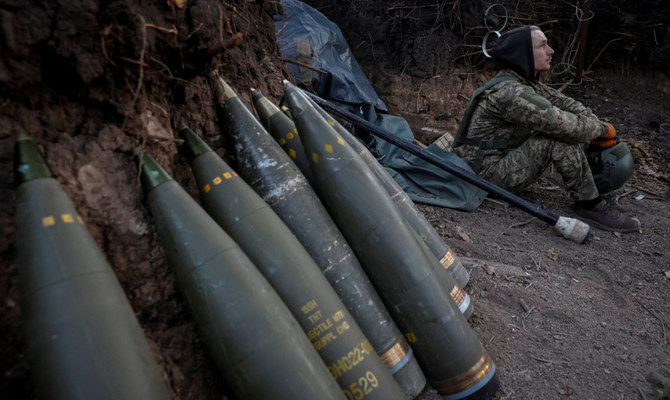
- Kyiv has been heavily reliant on billions of dollars of US military aid in its war with Russia following Moscow’s full-scale invasion in February 2022
WASHINGTON, United States: The United States is the first to acknowledge that its long-awaited $61 billion aid package for Ukraine is not a "silver bullet."
As weapons and ammunition are rushed to the country, other issues such as manpower shortages in Kyiv's struggling military have come to the fore.
Meanwhile, the monthslong delay in passing the aid package — caused by wrangling among US lawmakers — has further weakened Ukraine's position on the battleground, according to analysts.
President Joe Biden, who quickly signed the law Wednesday after it passed Congress, said the bill "should have gotten there sooner."
Jake Sullivan, his National Security Advisor, said the aid package "will make a difference," but warned "there is no silver bullet in this conflict."
"One capability is not going to be the ultimate solution," Sullivan told a White House briefing, though he added "Ukraine's position in this conflict will improve and we believe that Ukraine can and will win."
Kyiv has been heavily reliant on billions of dollars of US military aid in its war with Russia following Moscow's full-scale invasion in February 2022.
But in recent months Ukrainian forces — outgunned and outmanned — have struggled to hold back Russian troops.
And in the United States — Ukraine's largest provider of military assistance — a bogged-down Congress had not approved large-scale funding for Kyiv since December 2022 before the new package was passed this week.
It contains nearly $14 billion to train, equip and finance the needs of the Ukrainian army.
Manpower shortage
Garret Martin, of the American University School of International Service in Washington, said the delay by US lawmakers in passing the aid package "had a cost."
"The aid can shore up Ukraine but it's not a magic wand that could fix all the challenges they face," Martin said.
"What the package cannot do is deal with the shortage of manpower," he added.
Biden and his Ukrainian counterpart Volodymyr Zelensky have discussed the manpower issue, according to the White House.
In April, Kyiv reduced the minimum age for military conscription from 27 to 25, making thousands more men eligible for the draft.
And this week, it stopped issuing new passports abroad to military-aged Ukrainian men, as part of measures to push them to return home and fight.
Max Bergmann, of the Center for Strategic and International Studies, said that the impact of American aid would depend on European efforts.
"European nations need to ramp up (weapons) production now," Bergmann said.
"Europe's goal should be to put itself in a position to potentially fill a future gap left by the United States should it not pass another supplemental."
Bergmann said that Ukraine should use 2024 to "hold the line, exhaust and attrit Russian forces," with next year possibly presenting an opportunity for a Kyiv offensive.





